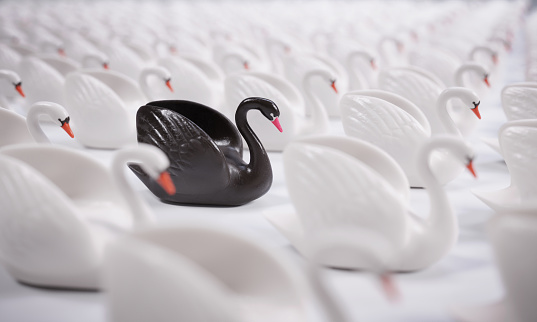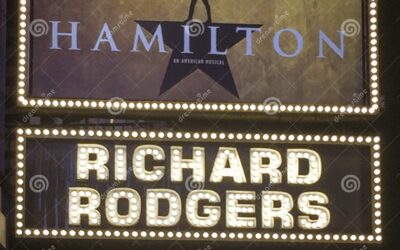Beauty is no quality in things themselves: It exists merely in the mind which contemplates them; and each mind perceives a different beauty.
David Hume
In the summer of 2000, I was on the island of St. Kitts teaching in an international doctoral program as part of the university’s residency requirement for its graduates. I was preparing the students for their dissertation projects by introducing them to the methodology of qualitative research. Qualitative research differs from the more traditional quantitative research in several key ways. But the very most fundamental difference between the two is the perception of reality. Quantitative research posits that there is truth out there and by carefully designed scientific measurement, it can be uncovered. And for many questions when data can be quantified, that is absolutely true. But qualitative research takes an alternative approach. Reality is socially constructed, understood from different perspectives, and in the eye of the beholder. The task of the qualitative researcher is to uncover the richness of that reality, the different perspectives that feed it, and present it to the reader in all its complexities. With this understanding, it is incumbent on the researcher to disclose existing biases so that the reader can factor that into the understanding of the issue.
One of the useful tools of qualitative research is the interview of “informants,” or people knowledgeable about your subject. There is a caution, though, for the researcher. It applies to all research, but it can be particularly problematic when the researcher is intimately involved with the subject matter. To teach the two lessons, I gave the students an exercise.
• Over the next two days, interview four native born residents of St. Kitts and ask them the following question: “What is life like on St. Kitts?”
• Write down as close to verbatim everything they say.
• Read through all the responses and see if there are any themes or similarities.
• Group them according to the themes and hand them in a report.
I took all the reports, found similar themes among them and prepared a sheet with random quotes from our island “informants” representing the major themes my new researchers had discovered. The following class, I handed them a Xeroxed copy of the result. They were now to work in groups to prepare a write-up about St. Kitts, answering the research question.
The groups were now ready to present their results. A group of all women went first. They read a paragraph that could have been used as a travel promo for the island. They spoke of the glorious sunsets, the majestic volcanoes, miles of pristine beaches, the friendly populace. When they were done, a male student raised his hand.
“Did you give everyone the same data to process?”
I answered in the affirmative but I could see he didn’t believe me. I asked the reader of the island travelogue to hand him her sheet. He took a look then spoke again.
“Well, then, we have to go next.” And he rose to read.
The paragraph that he read came directly from the same data sheet as the previous group’s. But his narrative painted a picture of an island in crisis: drug addiction, AIDS, and poverty. The two versions couldn’t have been any more different. The hour ended and more discussion would follow in the succeeding classes about how the very questions that we ask and the answers we arrive at are deeply influenced by who we are and what we already believe.
I have frequently thought of that class and the lessons it taught. And I am reminded of those lessons every time I look at the news. It is cliché to say that we are living in two Americas. But I am reminded of that each time I read a missive from a family member who lives in the one opposite to mine. I see that we are fueled by two sets of beliefs and educated by two separate streams of information. We are told of the Civil War and how it split families, set brother against brother. We thought that was behind us until this moment. The many layers of American society, the economic differences, the ethnic richness, the historic and social divides are given only two choices at the ballot boxes. It makes us ally with one side or the other, even if we have feelings somewhere in between. And once we’ve made our choices, we stand across the fence from each other, moving forward as parallel lines which by definition can never meet.
***
No amount of observations of white swans can allow the inference that all swans are white, but the observation of a single black swan is sufficient to refute that conclusion.
David Hume
This simple metaphor, expressed in the eighteenth century by Hume, the Scottish philosopher and empiricist, prepared the path for the scientific principle of falsifiability* promoted in the twentieth century by Sir Karl Popper, philosopher of science. The problem with human nature is that in our efforts to make meaning of our world, we are driven to search only for more white swans. Worse still, should we by accident come upon a black one, we have a myriad of tools to explain it away or simply dismiss it. The black swan conundrum is the ground upon which our current dilemma stands.
There is one thing with which we all agree: we are at an inflection point in our history. We see ourselves on the precipice of losing our country should the other side prevail. But what does it mean to lose our country? The elements that we see as essential for a healthy America whose fading we lament, are as different as the policies we propose as solutions.
– Where some once saw a malignant leader obsessed with self and incapable of performing the basic tasks of his job, others saw a hero disrupter and defender of an America that they worried was slipping away.
– Where some now see a progressive and competent restorer of civil order, others see a septuagenarian, senile and weak.
– Where some see masks and vaccinations as simple keys to a return to normal social and economic life, others see a challenge to personal freedom and the act of an authoritarian regime.
– Where some see the dismantling of the safeguards of democracy, others see the destruction of a malevolent “deep state.”
– And finally, where some see proof of validity in a much investigated election, others persist in looking for the elusive black swan.
Is obstructing the current legislative agenda – whether opposing steps to end the pandemic or ignoring pressing economic and social needs – an attempt to scuttle the other side’s success rather than the actual fear of an impending socialist state? Or is it a valiant bulwark against the downfall of a free society? Is the adoption of new voter restrictions the protection of the sanctity of the vote, or is it the silencing of voices that are disproportionally hampered by these restrictions?
How can we cope with this entrenchment? In the past, the winner of an election got to enact policies to be tried out until the majority desired a change of course. This required the defunct art of the compromise. In this zero-sum game, to take less than what you want in order to get something that you need means you lose. And to get nothing that you want as long as the other side gets nothing as well – that’s a win. I know that arguing points of logic is useless because the news and commentary that we expose ourselves to merely offer us more white swans. If we could only stop tallying the swans and turn our attention to the actual problems of the day, maybe we could all win.






0 Comments